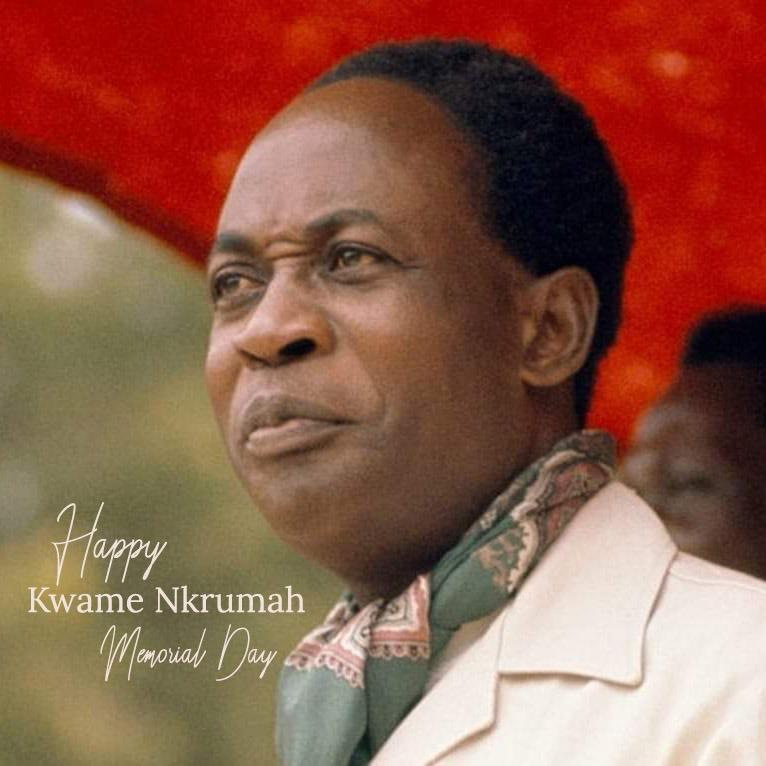5 Music Legends Who Shaped Present-Day Ghanaian Music Industry
17 November 2023

[Kwame Nkruma/Music In Africa]
Ghana, a country rich in culture and vibrant rhythms has a strong reputation in the entertainment scene. A group of musicians emerged as the torchbearers of the nation's music industry decades ago and their extraordinary contributions and unwavering passion for their craft propelled Ghana's music scene to new heights, leaving an indelible mark on the nation's cultural heritage.
They gave it their all and shaped what Ghana is today. Here are Ghanaian legendary artists who have made significant contribution to the industry.
Kwame Mensah
Among these revered musicians is Kwame Mensah a master of highlife music. Kwame's soulful voice and rhythmic guitar melodies captivated listeners across the country. With his infectious energy and heartfelt lyrics, he brought people together, celebrating Ghana's cultural roots through his music. Kwame's timeless classics served as a bridge between generations, ensuring that the spirit of highlife music remained alive and vibrant in Ghana.
Ama Owusu
Alongside Kwame, there was Ama Owusu, a sensational gospel singer who touched the hearts of millions with her angelic voice. Ama's songs carried messages of hope, faith, and gratitude, resonating with a deeply religious nation. Her performances were filled with joyous energy, inspiring listeners to find solace in the power of music and spirituality. Ama's contributions to the gospel genre uplifted spirits, fostering a sense of unity and divine connection among Ghanaians.
Kofi Amankwah
In the realm of reggae music, a genre that spoke to the struggles and aspirations of the people, stood Kofi Amankwah. With his soul-stirring vocals and socially conscious lyrics, Kofi became a voice for the voiceless. His songs addressed social and political issues, advocating for change and inspiring a generation to fight for justice and equality. Kofi's impactful music ignited the flames of activism, empowering Ghanaians to stand up for their rights and make a difference in their communities.
Abena Mensah
Meanwhile, in the realm of hip-life, a genre that fused traditional Ghanaian rhythms with modern-day rap and hip-hop, there was Abena Mensah. With her fiery rhymes and infectious beats, Abena's music brought a fresh and unique sound to the nation. Her lyrics told stories of everyday life in Ghana, capturing the struggles, dreams, and aspirations of the youth. Abena's contributions to hip-life not only entertained but also reflected the realities and dreams of a new generation, becoming a voice for the streets and inspiring young Ghanaians to express themselves through music.
Kwaku Ansah
Lastly, there was Kwaku Ansah, a master of highlife fusion. With his innovative approach to music, Kwaku seamlessly blended traditional Ghanaian sounds with elements of jazz, funk, and Afrobeat. His intricate compositions and charismatic performances captivated audiences, both at home and abroad. Kwaku's musical prowess transcended borders, showcasing the richness and versatility of Ghanaian music on the global stage.
As the years went by, these talented musicians continued to shape Ghana's music industry, with their contributions extending far beyond the boundaries of the nation. They inspired a new generation of artists, instilling in them the importance of preserving Ghana's musical heritage while pushing boundaries and exploring new frontiers.
Their songs echoed through the streets, filling the air with melodies that celebrated Ghana's diverse cultural tapestry. Their performances drew crowds of eager fans, spreading joy, unity, and a deep sense of national pride. Through their music, these Ghanaian musicians became ambassadors, sharing the nation's rich cultural heritage with the world.
And so, their names became synonymous with excellence and innovation, forever etched in the annals of Ghana's music history. Their legacy lived on, inspiring generations to come, and ensuring that the vibrant rhythms of Ghana would continue to resonate through the hearts and souls of its people.





Leave your comment